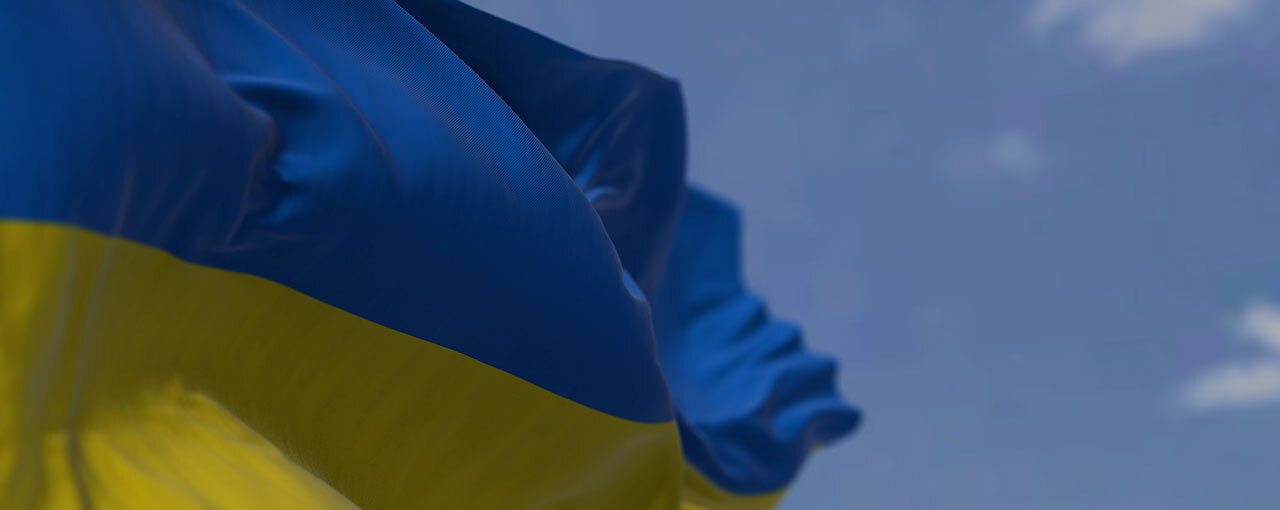Ukraine Peace Summit
Ukraine Peace Summit in Switzerland: Why a high-level South Asian presence is important

“Peace for Ukraine” is the deepest yearning of citizens, diplomats, foreigners, active defenders and leaders facing the onslaught of the largest country in continental Europe. Even in the face of daily missile and drone strikes, they seek peace on their terms. Bilateral or multilateral talks focused on stopping the war against Ukraine have done little to resolve the crisis over the past two years.
Striving for full agency and representation and adhering to the principle “nothing about Ukraine without Ukraine”, it is this beleaguered nation that laid out the roadmap to peace; President Volodymyr Zelenskyy's Ten Point Peace Plan was first announced at the November 2022 Summit of G-20 nations in Bali, Indonesia.
A study of the ten-point plan, especially the order of its priorities, reveals its merits. The first point revolves around radiation and nuclear safety, keeping in mind that Europe's largest nuclear power plant, located in Zaporizhzhia, is now occupied and controlled by Russia, a valid reason for the IAEA to have declared its misgivings. Ukrainians and Europeans are naturally apprehensive after the Chernobyl disaster of 1986. India, China and other world powers have warned Russia against the use of tactical nuclear weapons or harming or endangering NPPs.
Other points of the plan are energy and food security, the release of POWs, return of adults and children forcibly deported to Russia, implementation of the UN Charter and restoration of territorial integrity, withdrawal of Russian troops, end of hostilities, justice and reparations, counteracting ecocide and the demining and restoration of water treatment facilities.
India’s growing connections and the conclusion of its free trade agreements with Switzerland and other European Economic Area countries created expectations within the international community that India will be well represented. The G-7 summit in Italy, where India is invited as a guest, occurs a day before the Peace Summit, providing firm ground for these expectations.
First, Indian Prime Minister Narendra Modi pledged India's commitment to representing the Global South's voice at the summit;[1] Sri Lanka reportedly also promised a high-level presence during a telephonic conversation with President Zelenskyy.
India projects itself to be a “Vishwamitra” (friend of the world) and states its commitment to the motto of “Vasudaiva kutumbakam” (the whole world as a family), treating it as a guiding force in diplomacy. The Summit will allow Indian leaders to push forward a proactive peace agenda, whereas for other South Asian nations (such as Nepal, Bangladesh, Bhutan, Sri Lanka and the Maldives) surrounded by militarily powerful states, this is an occasion to extend support to Ukraine as a target of aggression.
Second, it is hoped that Prime Minister Modi’s re-election will grant his advocacy for peace in Ukraine greater weight.
Third, this Summit, rather than being an occasion to arrive at proposals for peace, is merely the first gathering of attendees of such an echelon and a diplomatic move. Thus, it should leave no South Asian state, including India, perturbed that Russia is absent from these proceedings. Rather, their consideration of the China factor here is important. Indeed, with China opting out of the Peace Summit owing to its alignment with Russia vis-a-vis Ukraine, it presents an advantageous moment for South Asian nations to exhibit their strategic independence, demonstrating that their actions are not swayed by Russia. At the same time, being at the summit does not automatically imply decoupling from Russia for any of these South Asian states.
Fourth, India cannot ignore humanitarian considerations, having supplied 16 consignments of humanitarian aid to Ukraine between 2022 and 2024. It has already offered a USD 1.5 million High Impact Community Building Grant to Ukraine, usually reserved for India's neighbours. India’s presence at the summit will underline the continuation of these commitments.
Fifth, it is time for the leaders of Nepal, Bangladesh and Sri Lanka and re-elected Indian Prime Minister Modi to pay greater attention to another overlooked human dimension: the trafficking of innocent citizens (under the guise of false assurances) to Russia and their recruitment for the war. Nepal has had hundreds of its citizens recruited, with thousands from Sri Lanka as well as from other countries of the Global South, a sizeable number of them killed in the conflict. Marked as mercenaries, they do not enjoy protection as per the Geneva Convention of 1949. It is incumbent on the leaders of these countries to combat such trafficking, ere they are falsely perceived to have been aiding and abetting Russia’s actions; the inclusion of this issue as a point in the peace plan is the responsibility of these states.
Sixth, India ought to advocate for the return of prisoners and trafficked and deported children. Nobel Peace laureates from South Asia, like Mohammad Yunus, Malala Yousefzai and Kailash Satyarthi are exceptional ambassadors for the cause, the latter being iconic in helping children in distress.
However, given that a neutral country like Switzerland is hosting the summit on its territory, South Asia’s absence or under-representation at the summit will not lend it an impression of neutrality but raise suspicion of its tangential alignment with Russia or (at least) kowtowing to the latter’s national interests. Being present at this summit will place India centre stage in a European peace process, a historical role that will not only enable India to take part in the post-war reconstruction process, but also showcase its candidature as a permanent member of the UN Security Council.
Finally, attending the Summit will put an end to the post-Cold war binary of “Russia vs. the West”. Indian Foreign Minister Subramaniam Jaishankar stated, during one of his interactions, that to be “non-West” does not mean “anti-West”. With South Asia joining European states in their discussion of peace and reconstruction, a new chapter of real strategic autonomy and multipolarity awaits.
